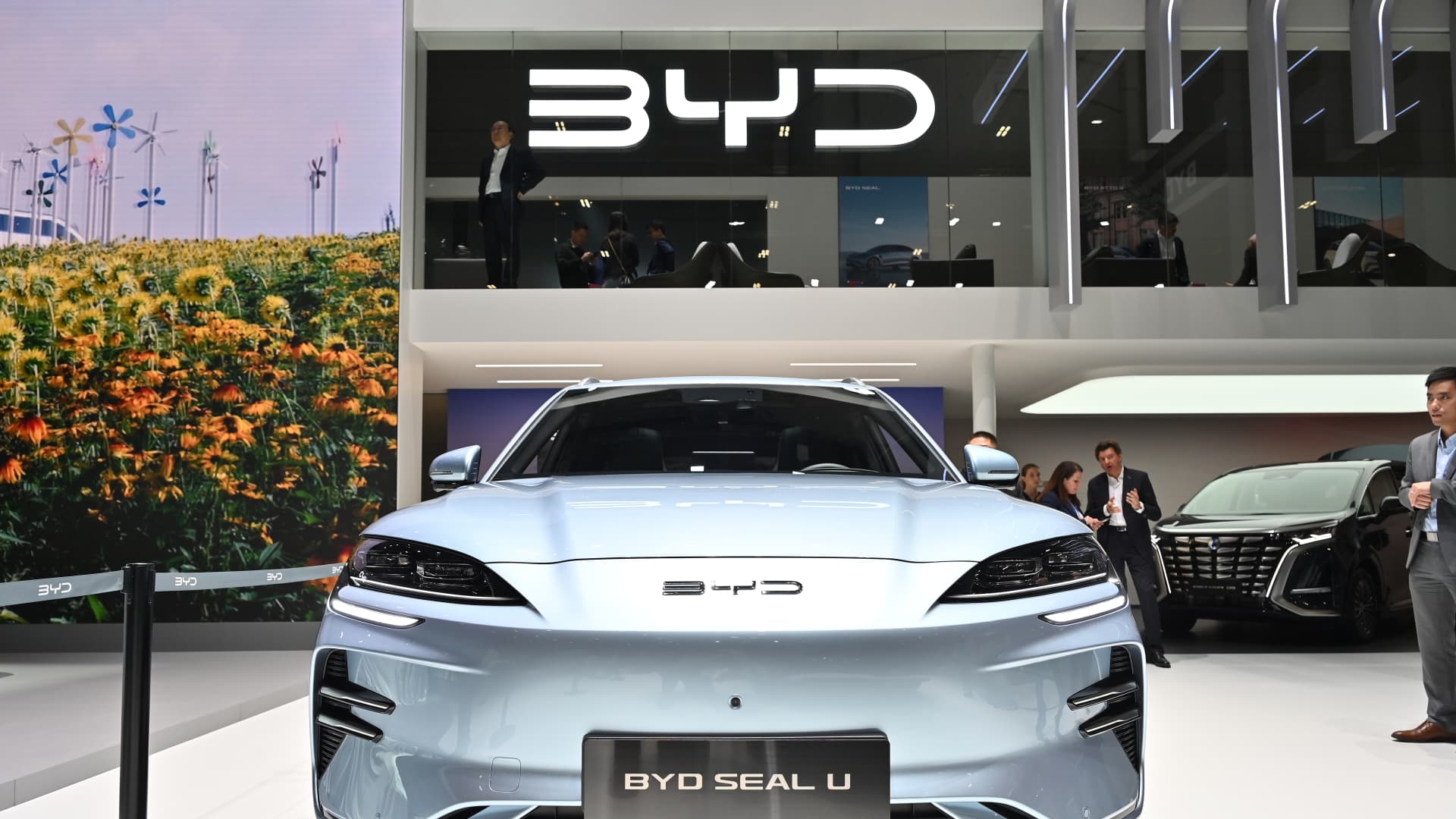The European Union on Thursday confirmed its decision to hike tariffs on electric vehicles imported from China — with one automaker issuing fresh warnings that it may have to raise prices as a result.
The European Commission, the executive arm of the European Union, announced plans for such levies in June after concluding in an investigation that producers of battery EVs in China benefit from “unfair” subsidization.
On Thursday, European regulators confirmed that these duties, which have been lightly tweaked to range from 17.4% to 37.6%, will come into effect on Friday. The levies will affect automakers from Chinese giant BYD to, potentially, European brands that make cars in China, and even U.S. giant Tesla, which has a factory in Shanghai.
The EU’s decision comes at a time when Chinese automakers have been aggressively expanding into Europe with competitively priced offerings, posing a threat to the region’s top automakers, many of which have lagged behind in EVs. The European Commission says these carmakers have benefitted from “unfair subsidisation.”
Automakers have already hit back at the tariffs.
On Thursday, Chinese EV maker Nio said it is currently maintaining prices for its cars sold into Europe, but added that it “cannot be ruled out that prices may be adjusted at a later stage as a result of these tariffs being imposed.”
A spokesperson for another Chinese EV upstart, Xpeng said on Thursday that customers who are awaiting deliveries of cars, or those who place new orders before the tariffs take effect, will be “protected from any price increases.”
It did not comment on whether it would end up raising prices as a result of the levies.
Geely declined to comment when contacted by CNBC.
When the EU first announced the tariffs last month, Tesla said it will likely increase the Europe prices of its Model 3 vehicle. The EU has yet to say what specific level of tariffs Tesla will face, but noted last month that the U.S. automaker “may receive an individually calculated duty rate.”
China-EU negotiations
The tariffs that take effect Friday are provisional and last for four months. In that time, EU member states must vote on so-called “definitive duties,” which would last five years.

Chinese and EU officials have held several rounds of meetings to discuss the tariffs, with Beijing in June criticizing the EU’s imposition of tariffs as a “protectionist act.”
Chinese Commerce Ministry spokesperson He Yadong said on Thursday that he hopes the two sides will “meet each other halfway, show sincerity, speed up the consultation process, and, on the basis of rules and reality, reach a mutually acceptable solution as soon as possible.”
Chinese EV maker committed to Europe
Chinese EV makers reiterated their dedication to the European market, where they have been expanding over the past few years.
Xpeng said it is “committed to providing high-quality innovative products to the ever-growing European customer base and making long-term commitments to these markets.”
The company added it is “actively assessing the feasibility of establishing local manufacturing capabilities in Europe.” Xpeng currently manufactures all of its cars in China. A European factory could help offset some of the tariffs.
BYD — one of the largest EV makers in China and globally — said last year that it plans to open its first European factory in Hungary, without specifying a timeline.
Nio meanwhile said on Thursday that it “is fully committed to the European market: we believe in fostering competition and consumer interest, and we hope to reach a resolution with the EU before definitive measures are enforced in November 2024.”







